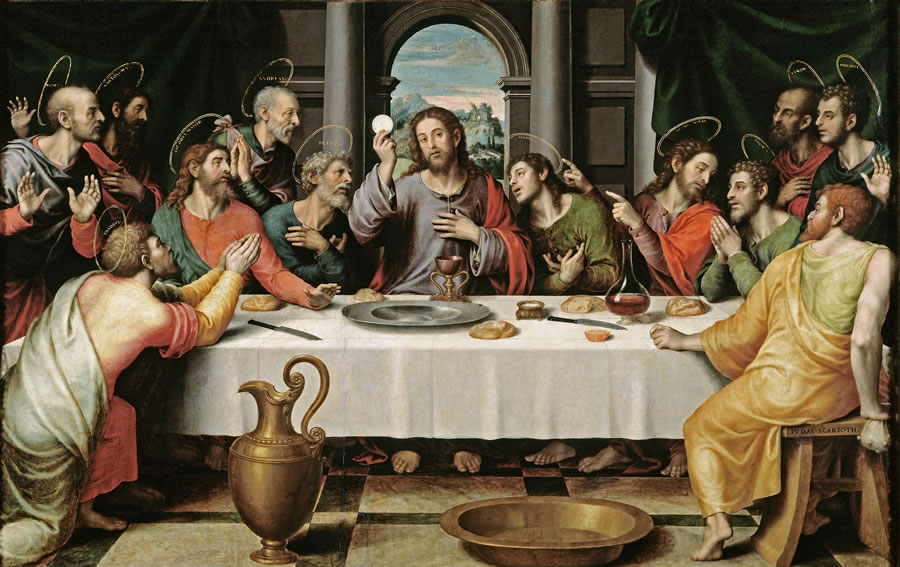
The Most Holy Body and Blood of Christ
06-18-2017Weekly Reflection©2017 Liturgical Publications, Inc."The Jews quarreled among themselves, saying, 'How can this man give us his flesh to eat?'" From the beginning, the Eucharist has been a source of controversy. Some people have always found the teaching difficult to accept. But as Catholics, the Blessed Sacrament is at the heart of our worship and our spirituality; we go to Mass to share in the holy sacrifice of Jesus' body and blood, and we receive spiritual nourishment from partaking of this heavenly food. As Jesus himself tells us in today's Gospel, "Whoever eats my flesh and drinks my blood remains in me and I in him."
From this passage it is clear that Jesus intended the Eucharist to be a tremendous gift for us, for "whoever eats this bread will live forever." This of course is because the bread is Christ's "flesh for the life of the world." In other words, just as he gave his body on the cross to save us from our sins, so too this same flesh is given for us at every Mass to strengthen our weakness and unite us more deeply to our Savior.
Receiving Communion isn't like taking a magic pill, however. We must beware of reducing this sacrament to an empty ritual or a foolproof guarantee of heaven. No, it is quite possible to receive Communion unworthily and reject its spiritual efficacy. Just like the benefits of a healthy meal can be undone by a habit of binging on junk food, so too we can prevent holy Communion from having its full benefits when we crowd our souls with vices and sins. If, on the other hand, we wish to let this sacrament of divine grace flourish, we should receive it with a sincere spirit of gratitude and reverence, praying that we may be made worthy to receive such a gift.
Santisimo Cuerpo y Sangre de Cristo
Ir a través del calendario lit/rgico durante el año es una verdadera catequesis. Si recordamos bien desde la Pascua hasta Pentecostés hemos vivido g!andes momentos de fe y de acercamiento al Señor. El domingo pasado escuchábamos lo que es la Trinidad. Hoy ponemos nuest!a atención en la solemnidad del Cuerpo y la Sang!e de Cristo. Su inicio f)e en Lieja (ciudad en Bélgica), en 1246, luego f)e extendida a toda la Iglesia occidental por el Papa Urbano IV. Su finalidad es proclamar la fe en la presencia real de Jesucristo en la Sagrada Eucaristía.
El mismo Señor Jesús nos dice en la Sagrada Escritura: "Yo soy el pan vivo que ha bajado del cielo; el que coma de este pan vivirá para siempre. Y el pan que yo les voy a dar es mi carne para que el mundo tenga vida" (Jn 6, 51). Jesús es la Palabra divina encarnada en el mundo. Su cuerpo y su sangre son comida y bebida para vivir en comunión con él. Es un verdadero misterio que la mente humana no alcanza a comprender. Pero, la fe ayuda a por lo menos entender que en el sacramento de la Eucaristía Jesús mismo se nos da para siempre. ¿Qué le decimos al Señor cuando lo recibimos en la Eucaristía? ¿Qué sentimientos afloran en nosot!os cuando vamos en procesión para recibirlo? Para nuestra reflexión semanal nos pueden ayudar las siguientes palabras. Pan, vi no, cuerpo del Señor y vivir para siempre. Con estas palabras en mente y el corazón lleno de fe en la Eucaristía, solo me resta decir que cantando vamos caminando al encuentro del Señor. ¡Que así sea!
BACK TO LIST